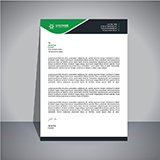Sometimes an insurance agent can get in trouble simply for following the insured’s instructions. The insured has a loss, the recovery is less than expected, the insured wants to blame someone, and the agent who sold them the policy becomes a convenient target. It’s unfair, but sometimes there is justice, as a South Carolina agency found.
A limited liability company owned a property that it leased to a corporation. That corporation in turn subleased it to another LLC, which operated it as a convenience store. The sublease required the tenant to carry insurance on the building “in such amounts as are reasonably necessary to protect (the landlord) and such amounts shall be at least for the fair market value of the buildings and equipment.”
The tenant asked an insurance agent to obtain insurance that would meet the sublease’s requirements. The LLC tenant’s principal gave the agent “explicit instructions that the limit of any insurance policy should be set at $400,000.00 for each insured location.” The tenant did not give the agent a copy of the lease (something that probably helped the agent in the ensuing lawsuit), and they never asked the agent for an opinion as to what insurance coverage the lease required.
Based on these instructions, the agency obtained a policy covering the building. The policy subsequently renewed twice, with the second renewal including an increase in the building limit to $420,000 at the insurer’s insistence.
Among the provisions in the policy was the standard coinsurance clause. The agent explained to the insured that the insurer would penalize him if he did not insure the property to at least 80% of its replacement cost. The insured asked no questions and gave the agent the impression that he understood.
During the third policy term, a fire destroyed the convenience store. A few months later, the insured submitted a sworn statement in proof of loss to the insurer. It indicated that the building’s estimated replacement cost was $767,653.21, meaning that the insured was required to carry a limit of at least $614,122.57. However, the limit was only $420,000. The insurer calculated the building’s actual cash value at $498,974.59 and the ACV of the loss (after coinsurance penalty) was $317,027.71. The insured had a $35,000 deductible, so the insurer paid them $282,027.71, a bit more than one-third of the replacement cost, five days after receiving the proof of loss.
Three years after the fire, the building owner and its lessee sued the tenant, the agency and the insurer. They sued the agent for breach of contract; breach of his duty to advise the tenant; negligent misrepresentation of the policy’s terms; fraud; and breach of fiduciary duty. The tenant assigned all of its rights under the insurance to the owner and landlord in exchange for dropping the lawsuit against them. Another company bought the building owner and pursued the lawsuit against the agency as the original owner’s successor.
The judge ruled that the insured failed to demonstrate that the agency had taken on an advisory role and therefore the agency could not have breached a duty to advise. She also found that there was no contract for the agency to have breached, She ruled that the insured had not proven any fraud on the agent’s part, and that the tenant had caused its own loss by requesting insufficient insurance limits.
The agency in this case could have offered a higher building limit to the tenant based on a figure determined by using a cost estimating tool. It could then have presented this option to the insured in writing or by email. Given the insured’s explicit instructions to the agent, they might not have purchased a higher limit anyway, but documentation of the offer would have given the agent another defense in court. As it was, the agency successfully defeated this action.
When the worst happens, some insureds will try to blame an insurance agent who merely followed directions. For this reason, agents should carefully document all interactions with insureds so they can present an alternative story to a court. Documentation can make the difference between winning and losing.
















